Once upon a time, there was a king who had four daughters. When his wife died, he wanted to make one of his daughters queen. Being a bit of a foodie, he asked them to go and search for an interesting edible item and bring it to him as a present. He would choose the most interesting food item, and bestow on the bearer of the gift the treasured title of queen.
His eldest daughter travelled to the northernmost parts of the country (it was a good chance to see her boyfriend who was stationed in the army at Kozani) and brought her father colourful crocus bulbs from which the most expensive spice in the world, saffron, was collected. Her father was delighted that his eldest daughter could combine food with luxury (he had no idea about the boyfriend); but saffran was an unusual spice, and the cook often forgot to add it to the foods he cooked for the royal family, simply because the local cuisine did not demand it. It had its own special range of herbs and spices in its repertoire.
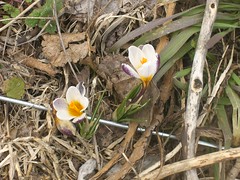

Saffran is a specialty of Kozani, Northern Greece, although crocus flowers also grow in other parts of Greece (these were sighted at Omalos). The spice is sold in supermarkets - a little box like costs about 5 euro.
His second daughter travelled beyond the borders of the country (the jet-set had all booked holidays in Thailand that year) to an exotic land that produced equally exotic looking juicy fruits called pitahayia, very refreshing if you were stuck on a desert island. The king was delighted that his middle daughter could combine thirst with an aesthetically pleasing appearance in her food (he didn't know that she had picked up these fruits at Bangkok airport, as she remembered her father's request at the eleventh hour); despite the fruit's inherently unique appearance, he found the fruits quite tasteless.
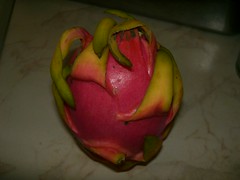
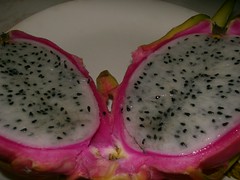
Pitahayia, imported from Vietnam, and sold in Hania supermarkets.
His third daughter considered herself as having very refined tastes. She wanted to buy something organic, green, ecologically sound, locally grown, and above all sustainable, so she set off to an high class supermarket to see what she could find. In the herb section, she came across something she had never heard of before, 'antrakla'. She liked the look of this healthy looking plant, and the sound of its name; it sounded so mannish. She brought it home to her father, who accepted with a smile. He knew his third daughter was a tad pretentious, and that she wasn't very clever; the purslane weed she had bought him was known in his kingdom as 'glistrida' and it was growing all over the garden in the summertime.
His youngest daughter didn't really care for holidays to exotic places and was quite content to stay put, taking walks by the sea in her shorts and T-shirt, talking to the locals who didn't realise who she was, and picking up bits and pieces of nature along the way. She wasn't interested in the crown either, but knew she had to play along to keep her dad happy and smiling now that mum was gone. On her walks, she liked to collect things she found in nature, but made sure she only gathered sustainable resources, to ensure that something could be left for the next wanderer to enjoy. She wasn't worried about the next generation, as in her opinion, they should learn to fend for themselves.
When she arrived home, without changing into clean clothes, she dragged in the big plastic bag she was carrying and announced to her father that she had finally found a interesting food item that she wanted to present to him. The king was very excited to hear as this, as he knew that of all his daughters, the youngest one was the most sensible one. He looked into the bag and found...
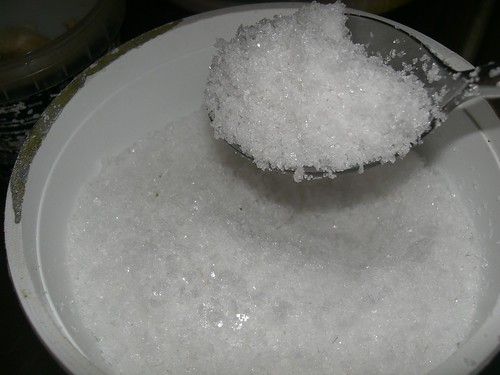
Can you imagine being given five kilos of rock salt? This will last me until November, when I start salting black olives for preservation. It was given to us a gift by a family friend, who collected it from the beaches on the Akrotiri peninsula in northeast Hania.
... the clearest rock salt crystals he had ever seen. He didn't look down on his daughter because she had brought him something so common and coarse; he wasn't angry, and he did not banish her from the kingdom. The king was a wise man, and he knew that saffron and pitahayia, for all their unusual and interesting features, could not replace salt under any circumstances, and neither could you imagine a world where there is no salt for your meat, broth and bread, because salt is necessary for life. So of course he made her queen, and just as well, because her sisters ended up leaving home for other shores, as the grass always looks greener on the other side. The young queen married the gardener and they lived happily ever after.
And if this story reminds you of a fairy tale you've heard before, here's the original version.
"Αλάτσι" (alatsi) is the Cretan word for salt, which is "αλάτι" (alati) in Greek.
©All Rights Reserved/Organically cooked. No part of this blog may be reproduced and/or copied by any means without prior consent from Maria Verivaki.
His youngest daughter didn't really care for holidays to exotic places and was quite content to stay put, taking walks by the sea in her shorts and T-shirt, talking to the locals who didn't realise who she was, and picking up bits and pieces of nature along the way. She wasn't interested in the crown either, but knew she had to play along to keep her dad happy and smiling now that mum was gone. On her walks, she liked to collect things she found in nature, but made sure she only gathered sustainable resources, to ensure that something could be left for the next wanderer to enjoy. She wasn't worried about the next generation, as in her opinion, they should learn to fend for themselves.
When she arrived home, without changing into clean clothes, she dragged in the big plastic bag she was carrying and announced to her father that she had finally found a interesting food item that she wanted to present to him. The king was very excited to hear as this, as he knew that of all his daughters, the youngest one was the most sensible one. He looked into the bag and found...

Can you imagine being given five kilos of rock salt? This will last me until November, when I start salting black olives for preservation. It was given to us a gift by a family friend, who collected it from the beaches on the Akrotiri peninsula in northeast Hania.
... the clearest rock salt crystals he had ever seen. He didn't look down on his daughter because she had brought him something so common and coarse; he wasn't angry, and he did not banish her from the kingdom. The king was a wise man, and he knew that saffron and pitahayia, for all their unusual and interesting features, could not replace salt under any circumstances, and neither could you imagine a world where there is no salt for your meat, broth and bread, because salt is necessary for life. So of course he made her queen, and just as well, because her sisters ended up leaving home for other shores, as the grass always looks greener on the other side. The young queen married the gardener and they lived happily ever after.
And if this story reminds you of a fairy tale you've heard before, here's the original version.
"Αλάτσι" (alatsi) is the Cretan word for salt, which is "αλάτι" (alati) in Greek.
©All Rights Reserved/Organically cooked. No part of this blog may be reproduced and/or copied by any means without prior consent from Maria Verivaki.
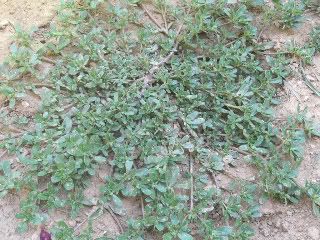
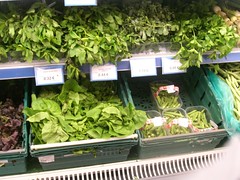
Good one...we have lots of this salt from Akrotiri too, it's the Cretan influence!
ReplyDeleteSalt is my saviour and also my biggest sin! I envy your big batch Maria!
ReplyDeleteThanks, I love the story and photos. By the way, the fruit you know as pitahayia is called dragon fruit here. It isn't easy to find fresh in the markets but (as you know) it is worth the hunt.
ReplyDeleteI love sea salt/rock salt ... my sister brought me back a big batch last summer from the beautiful and unspoilt Karpathos, where her friend's grandmother collects it regularly.
ReplyDeleteWe have to have our salt; I envy your wonderful gift and loved the story so much! Thanks
ReplyDeleteOkay, once again, I log on to see that I've missed three posts. Grrrr.
ReplyDeleteAnyway ... I enjoyed this story about salt! Over the past couple of years, I've really come to enjoy sea salt that I put in a salt grinder. The taste is so much cleaner, and less, uh, salty! I've only seen pictures of that fruit in the story, and I've never actually cooked with saffron (it's terribly expensive here). Most folks here substitute turmeric for it to get the golden color.
Your post on lemons has me "thunking" my forehead! I love your idea to freeze the lemon juice. Why, oh why have I never done this? I do that with chicken broth; it works great. Now I'll do that for lemon juice!
The other post dealing with storage, prep, and the food pyramid speaks to all of us. Having a garden means so much to me ... now if only the little critters would leave my plants alone! :-)
i have to agree with you maria - sea salt does taste less salty when used in food in the same quantity as conventional salt
ReplyDeleteThe salt is pretty, but 5 kilos!
ReplyDeleteSea salt rules! I buy some fleur de sel from Mesologgi for my salads, it is very expensive (6 euro per 150g) but makes such a difference. For all other purposes I use unprocessed sea salt from France, it is cheap and tasty!
ReplyDeleteAlthough the saffron is dear and highly coveted - I would value the sea salt highest...so much part of our cuisine.
ReplyDeleteThat's what I call a gift - 5kilos of pure sea salt is worth its weight in gold! I had not heard this tale before but it's a perfect reminder to all of us that food need not be of complex technique or exotic ingredients to be of great value. Sometimes, the most simple food is what sustains us!
ReplyDelete